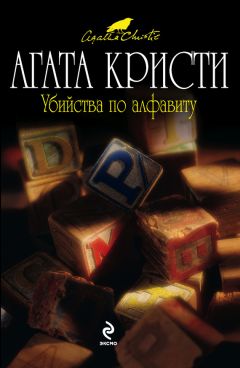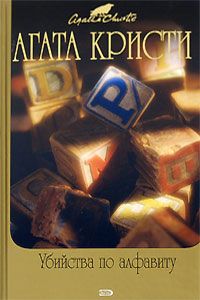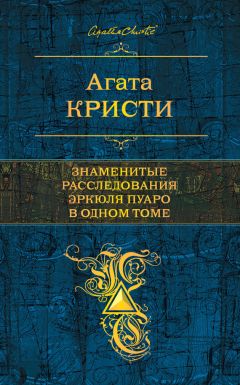Agatha Christie - Английский язык с Агатой Кристи. Убийства по алфавиту
I examined my old friend with an affectionate eye (я осмотрел моего старого друга дружелюбным взглядом; affection — любовь, чувство близости, привязанность). He was looking wonderfully well (он выглядел удивительно хорошо) — hardly a day older (едва ли на день старше) than when I had last seen him (чем, когда я видел его в последний раз; to see — видеть).
"You're looking in fine fettle, Poirot," I said (вы хорошо выглядите: «вы выглядите в отличном состоянии», Пуаро, — я сказал; fettle — положение, состояние). "You've hardly aged at all (вы вовсе едва постарели; age — возраст; старость; век). In fact (фактически), if it were possible (если бы это было возможно), I should say (я бы сказал) that you had fewer grey hairs than (что у вас меньше седых волос, чем; grey — серый; седой) when I saw you last (когда я вас видел в последний раз; to see)."
affectionate [ǝˈfekʃnɪt], should [ʃʋd], hair [hɛǝ]
I examined my old friend with an affectionate eye. He was looking wonderfully well — hardly a day older than when I had last seen him.
"You're looking in fine fettle, Poirot," I said. "You've hardly aged at all. In fact, if it were possible, I should say that you had fewer grey hairs than when I saw you last."
Poirot beamed on me (Пуаро радостно мне улыбнулся; to beam — сиять; радостно улыбаться). "And why is that not possible (и почему же это невозможно)? It is quite true (это чистая правда: «это вполне истинно»)."
"Do you mean (вы имеете в виду) your hair is turning from grey to black (что ваши волосы становятся из седых черными; to turn — поворачиваться; становиться) instead of from black to grey (вместо того, что бы из черных — седыми)?"
"Precisely (совершенно верно)."
"But surely that's a scientific impossibility (но, действительно, это невозможно с научной точки зрения: «это научная невозможность»)!"
"Not at all (совсем нет)."
"But that's very extraordinary (но это очень необычно). It seems against nature (это кажется противным природе)."
beam [bi:m], precisely [prɪˈsaɪslɪ], extraordinary [ˌekstrˈɔ:dɪnrɪ]
Poirot beamed on me. "And why is that not possible? It is quite true."
"Do you mean your hair is turning from grey to black instead of from black to grey?"
"Precisely."
"But surely that's a scientific impossibility!"
"Not at all."
"But that's very extraordinary. It seems against nature."
"As usual, Hastings (как обычно, Гастингс), you have the beautiful and unsuspicious mind (у вас прекрасный и ничего не подозревающий ум; to suspect — подозревать). Years do not change that in you (годы не меняют этого в вас)! You perceive a fact (вы воспринимаете факт) and mention the solution of in it the same breath (и выдаете его разъяснение на одном дыхании: «упоминаете его разъяснение на том же дыхании») without noticing (не замечая: «без замечания») that you are doing so (что вы так делаете)!"
I stared at him puzzled (я уставился на него озадаченно).
Without a word (не говоря ни слова: «без слова») he walked into his bedroom (он прошел к себе в спальню) and returned with a bottle in his hand (и вернулся с бутылочкой в руке) which he handed to me (которую он передал мне).
I took it (я взял ее; to take — брать, принимать), for the moment uncomprehending (некоторое время /ничего/ не понимая; to comprehend — понимать, постигать, соображать).
unsuspicious [ˈʌnsǝsˈpɪʃǝs], perceive [pǝˈsi:v], uncomprehending [ˌʌnkɔmprɪˈhendɪŋ]
"As usual, Hastings, you have the beautiful and unsuspicious mind. Years do not change that in you! You perceive a fact and mention the solution of it in the same breath without noticing that you are doing so!"
I stared at him puzzled.
Without a word he walked into his bedroom and returned with a bottle in his hand which he handed to me.
I took it, for the moment uncomprehending.
It bore the words (на ней были слова: «она несла слова»; to bear — нести): REVIVIT («Ревивит») — To bring back the natural tone of the hair (восстанавливает естественный тон волос; to bring back — возвращать; восстанавливать). REVIVIT is NOT a dye («Ревивит» не является красителем). In five shades (в пяти оттенках), Ash (пепельный), Chestnut (каштановый), Titian (золотисто-каштановый), Brown (коричневый), Black (черный).
"Poirot," I cried (Пуаро, — закричал я). "You have dyed your hair (вы покрасили ваши волосы)!"
"Ah, the comprehension comes to you (а, понимание приходит к вам)!"
"So that is why (так вот почему) your hair looks so much blacker than it did last time I was back (ваши волосы выглядят гораздо чернее, чем они выглядели в прошлый раз, когда я возвращался; to be back — вернуться)."
"Exactly (точно)."
dye [daɪ], Titian [ˈtɪʃ(ǝ)n], comprehension [ˌkɔmprɪˈhenʃ(ǝ)n]
It bore the words: REVIVIT — To bring back the natural tone of the hair. REVIVIT is NOT a dye. In five shades, Ash, Chestnut, Titian, Brown, Black.
"Poirot," I cried. "You have dyed your hair!"
"Ah, the comprehension comes to you!"
"So that is why your hair looks so much blacker than it did last time I was back."
"Exactly."
"Dear me," I said (Боже мой, — я сказал; Dear me — устойчивое выражение 'Боже мой'), recovering from the shock (приходя в себя после потрясения; to recover — приходить в себя; исцелять, излечиваться). "I suppose (я полагаю) next time I come home (в следующий раз, /когда/ я приеду домой) I shall find you wearing false moustaches (я увижу вас носящим накладные усы: «фальшивые усы») — or are you doing so now (или вы сейчас это делаете)?"
Poirot winced (Пуаро сморщился; to wince — вздрагивать; морщиться). His moustaches had always been his sensitive point (его усы всегда были его слабым местом: «чувствительным местом»). He was inordinately proud of them (он чрезмерно ими гордился; inordinate — неумеренный; чрезмерный; to be proud — гордиться). My words touched him on the raw (мои слова задели его за живое; raw — что-л. сырое; больное место).
"No (нет), no (нет), indeed, mon ami (на самом деле, фр. мой друг). That day (тот день), I pray the good God (я молю праведного Бога), is still far off (все еще далеко). The false moustaches (накладные усы)! Quelle horreur (фр. какой ужас)!"
false [fɔ:ls], moustaches [mǝsˈtɑ:ʃɪz], raw [rɔ:]
"Dear me," I said, recovering from the shock. "I suppose next time I come home I shall find you wearing false moustaches — or are you doing so now?"
Poirot winced. His moustaches had always been his sensitive point. He was inordinately proud of them. My words touched him on the raw.
"No, no, indeed, mon ami. That day, I pray the good God, is still far off. The false moustaches! Quelle horreur!"
He tugged at them vigorously to assure me of their genuine character (он энергично потянул за них, чтобы убедить меня в их подлинности: «подлинном качестве»; character — характер; качество).
"Well, they are very luxuriant still," I said (ну, они все еще очень густые, — сказал я; luxuriant — буйный, пышный, богатый; luxury — богатство, роскошь).
"N'est-ce pas (фр. не так ли)? Never (никогда), in the whole of London (во всем Лондоне), have I seen a pair of moustaches to equal mine (я /не/ видел пары усов, равной моим)."
A good job too (вот это удача; job — работа, труд; a good job — разг. вот удача; здорово), I thought privately (я подумал про себя: «лично»). But I would not for the world have hurt Poirot's feelings (но я бы никогда в жизни не задел чувства Пуаро; to hurt — причинять боль; ранить; world — мир, вселенная; общество; перен. судьба, жизнь) by saying so (сказав так /вслух/).




